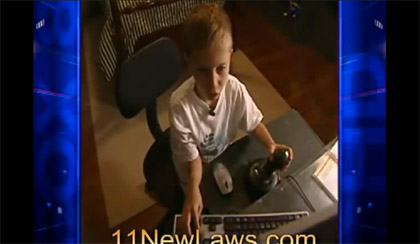Subliminal Messages in Music
Subliminal music means that (usually positive) suggestions and affirmations are hidden in the music, so the music is all we consciously hear. Our subconscious is capable of hearing and remembering everything. Perhaps you’ve heard of the studies done in hospital operating rooms, where it was discovered that patients under anaesthesia hear and remember everything the doctors and nurses said about them? The patients were not consciously aware of anything, yet they would hear a doctor say something like, “He’s pretty strong and healthy, he should recover quickly.” Sure enough, patients whose subconscious heard this did recover more quickly. Conversely, when a patient heard something like, “He will probably take several weeks longer than usual to recover”, the patient did take longer to recover. Their subconscious took those statements (from someone whose judgment was trusted) and acted on them.
The inflection of the words, tone of voice, phrasing, and emphasis on certain words as the suggestions are spoken also determine how fast and effectively the subliminal messages work. Electronic equipment is sensitive enough to pick up the energy of the speaker; if the speaker is “holding the frequency” of love, confidence, personal power, abundance, relaxation, etc., that energy is also transmitted to the listener.
From our earliest days as a child, our experiences “condition” us to believe certain things are true, whether or not we want to believe they are. If we hear something often enough from parents, teachers, or peers, or if we hear a statement about ourselves from anyone we consider to be older and wiser or whose judgment should be trusted (a parent, for instance), our subconscious accepts these statements as fact. If we experience the world as unsafe, unwelcoming or harsh in some way, that too forms a subconscious belief. These subconscious beliefs continue to direct our feelings, behaviors and experiences, including fears, phobias, depression, panic attacks, all kinds of self-defeating, self-sabotaging behavior, and repeating patterns of attracting to us negative people and experiences. As the negative experiences continue, the subconscious belief is reinforced. Although we consciously want to believe they are not true, our experiences tell us otherwise, and we are caught in a vicious circle.
How do we change this? By accessing our subconscious and rewriting our beliefs about ourselves and our lives. The most effective way to do this is to put the subconscious mind in a relaxed, open state, and then give it positive beliefs through suggestions and affirmations. This allows them to bypass the conscious, critical mind and directly access the subconscious, where you experience the fastest, most effective results. Subliminal music works on the same principles as hypnosis: both methods access the subconscious mind. The only difference is, one method (hypnosis) is active, and the other (subliminal music) is passive. Hypnosis is effective but time consuming and expensive as it usually requires a series of sessions, and you must (1) feel comfortable with the hypnotherapist and (2) find a hypnotherapist who is both qualified and talented enough to help you accomplish your goals and close enough to you geographically. Subliminal music helps you to achieve the same results at a fraction of the cost and time.
There is a school of thought that one can be “brainwashed” by subliminal messages to cause harm. This is simply not true, and was proven in a landmark court case in the 1950s wherein the defendant claimed he was hypnotized (given subconscious suggestions) to commit a murder. It was proven in this case that the subconscious will always reject any suggestions that go against your personal morals or ethics, and you CANNOT be made to do anything you don’t want to.[1] Similar theories were discussed and rejected regarding Sirhan Sirhan’s assassination of Robert F. Kennedy [2]. Milton H. Erickson, M.D., considered the father of modern day hypnosis and subliminal suggestions, “was among the first to say that Wells’s experiments were at best inconclusive. Erickson reported that after attempting to duplicate similar hypnotic inducements of crime with fifty subjects, he had failed. He concluded from his own investigations that “hypnosis cannot be misused to induce hypnotized persons to commit actual wrongful acts either against themselves or others…” The so-called antisocial acts induced by Wells and others, Erickson maintained, were most likely motivated by factors other than hypnosis or suggestion. “We know that it is possible, without recourse to hypnosis, for one person to induce another to commit a wrong, a fact we may explain loosely as the influence of one personality upon another,” Erickson explained. “To settle this question is difficult, since it involves three inseparable factors of unknown potentialities – specifically, the hypnotist as a person, the subject as a person, and hypnosis as such, to say nothing of the significant influence upon these three, both individually and collectively, of the suggestion and the performance of a questionable act.”[3]
Your subconscious has only one interest – to protect you. In the past, it has chosen what it thought was the best way to do that, and that is why it clings so strongly to some outdated beliefs that you no longer need. When that you realize these beliefs are really not serving your best interests; when you show your subconscious an easier and better way to help you, it will begin working with you instead of against you. [4.] Subliminal music that is specifically created to assist oneself in positive personal change is truly an effective way to “know thyself.”
























